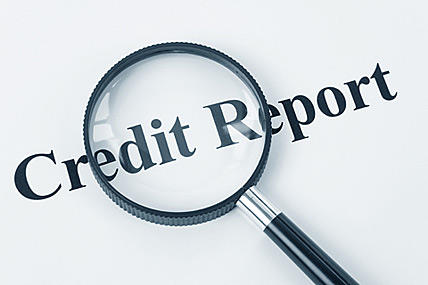Consumers should take the lead in examining their credit report
The accuracy of credit reports has been in the news lately, causing consumers to wonder how error-free their own report is. Since credit reports are the backbone of the all-important credit score, it is indeed important to fully understand what a credit report is, what consumer protections are in place, and what actions can be taken if errors are found.
Consumers can be their own best advocate to ensure the accuracy of their credit file, but education is key. If an error is identified, it is the consumer’s responsibility to take immediate action through the proper channels in order to resolve the issue.
The National Foundation for Credit Counseling (NFCC) offers the following Dos and Don’ts to help consumers better understand credit reports and the dispute process:
- Do understand the purpose of a credit report. A credit report is a track record that reflects an individual’s borrowing history. It also contains information about places of residency, law suits, arrests, and bankruptcies. The credit reporting agencies sell the information to those with a permissible purpose to review it, such as insurance companies, employers, lenders, and other businesses, so that they can make an informed decision. Therefore, the information contained in the report may impact loan approval, the rate at which money will need to be repaid, insurance eligibility, housing decisions, and employment.
- Do review the credit report for accuracy. At www.AnnualCreditReport.com, consumers are allowed one free report every 12 months from each of the major bureaus. Check the report for errors, confirming that all information is correct. The NFCC Financial Literacy survey revealed that in spite of it being free, 62 percent of respondents had not ordered a copy of their report.
- Do review the report often. Frequently reviewing the report allows action to be taken promptly if a problem is found, or if identity theft is suspected. Reviewing at least three months in advance of a major financial move allows time for most inaccuracies to be corrected.
- Do understand your rights. The federal Fair Credit Reporting Act (FCRA) provides consumers with protections around the accuracy and privacy of information in their credit file. The FCRA holds both the credit reporting company and the entity that provided the information to the bureau responsible for investigating and acting upon the dispute. The bureaus have dispute resolution processes in place, but it is up to the consumer to initiate the process by submitting the dispute form either online, by mail or by phone.
- Do expect a timely response. The FCRA requires credit reporting companies to investigate the items in question, usually within 30 - 45 days of the dispute being filed. The bureau receiving the dispute must forward all relevant information to the source of the information, thus beginning the investigation process on their end. After the provider’s investigation is complete, the results are sent back to the bureau. If the information provider finds the disputed information to be inaccurate, it must notify all three credit reporting companies, allowing them to each correct the information contained in their files.
- Don’t think that all errors have an equal impact. Some mistakes on reports can have a negative impact on the credit score, while others are not material. Examples of errors to address immediately are those containing information that does not belong to you, account inaccuracies, credit lines with limits listed as lower than they actually are, or negative information that has outlived the allowed reporting time.
- Do add a statement explaining the circumstances. If an entry is disputed, but the consumer disagrees with the results of the investigation, he or she is allowed to add a 100 word or less Statement of Dispute to be included with each future credit report, as well as to those who received a copy of the report in the recent past if requested.
- Don’t expect negative information to be removed. If information is negative, but true, it needs to remain on the report. Only time can remove it. A credit reporting agency is allowed to report most accurate negative information for seven years, while bankruptcies can remain for 10 years. Unpaid judgments can be reported for seven years or until the statute of limitations runs out, whichever is longer, while some information has no limit on how long it can be reported.
- Don’t use a credit repair company offering a quick fix. There is little a credit repair business can do for you that you can’t do for yourself, and do it for free. Further, the credit repair companies may charge consumers high fees and deliver few, if any, results. Although some may attempt it, credit repair companies are not allowed to ask for a fee in advance of any service being delivered, as this is prohibited by the Credit Repair Organizations Act. Frivolous challenges to a report are in no one’s best interest, and consumers should steer clear of anyone offering a quick fix.
“Since the credit score is based on the information in the credit report, one of the smartest financial moves a consumer can make is to obtain his or her credit report and give it a thorough once-over,” continued Cunningham.
For help reviewing your credit report, reach out to an NFCC Member Agency trained and certified counselor. To be automatically connected to the Agency closest to you, dial (800) 388-2227, or go online to www.DebtAdvice.org.












